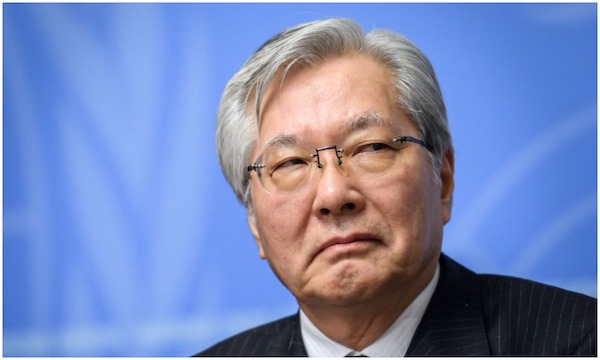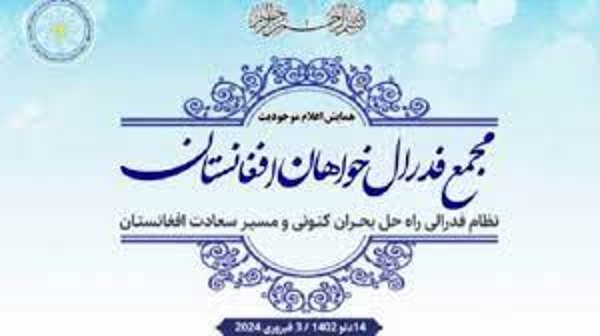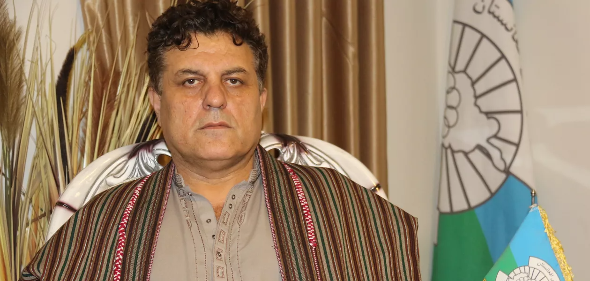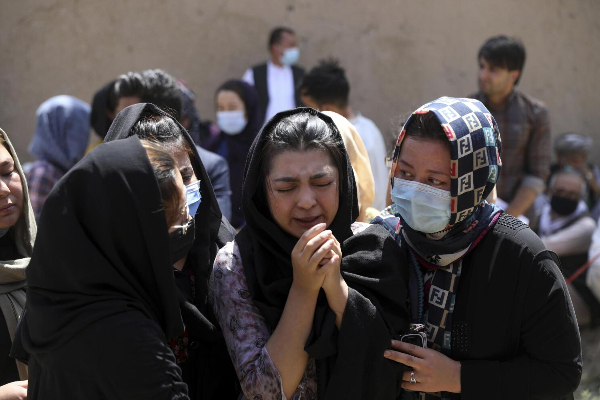Former UNAMA chief Tadamichi Yamamoto said this week peace talks, underway in Qatar between Afghanistan and the Taliban, will not be easy especially as there is a wide gap between the two parties when it comes to some key fundamental issues.

But itís imperative that both parties continue their dialogue and reach an agreement, even though it might take time, he said.
Speaking to Japanís daily, Mainichi, Yamamoto, who was head of the United Nations Assistance Mission for Afghanistan until March this year, said it is important to remember that this is only the first step and that due to more than 40 years of conflict, since the Soviet-Afghan war in 1979, "the situation there has become complex over these years."
He said the talks are a historic step toward peace - especially as the Taliban had previously refused to negotiate with the government.
But this was due, "greatly to efforts by the international community including the UN, but particularly the United States, Pakistan, and Qatar."
Yamamoto stated there would be challenges in terms of finding common ground during the talks especially on fundamental issues such as the distribution of power and system of governance, and human rights issues such as womenís rights.
"Although the Taliban were ousted from power in 2001, they still proclaim themselves the Islamic Emirate of Afghanistan and have maintained that they have the legitimacy to rule the country.
"They will likely insist on the Emirate as the form of government whereas the Afghan government would insist on the Republic as the form of government," he said.
He said although the Taliban have stated that they respect womenís rights in accordance with Islam, the specifics remain unclear, "and we donít know how much they will accept."
"There is a wide gap between the two parties when it comes to some key fundamental issues, and patience will be needed for the talks to succeed," he said.
He said however that when he spoke to the Talibanís political delegation in Doha, during his term as UNAMA chief, the group said it had changed and had learned lessons from the past.
"They are more conscious of how they are perceived by the international community. However, the Taliban are a large group, and as with any organization, members have different opinions.
"They appointed their chief justice and religious scholar Abdul Hakim Haqqani, a person close to the Taliban leader Hibatullah Akhundzada, as the head of its delegation in the talks. He is said to have conservative views. He was most likely appointed because the Taliban wanted to reassure their conservative members about the outcome of the negotiation," he said adding that he did hope this appointment is indicative of the Talibanís seriousness about the peace talks.
"Can the Talibanís leadership with conservative thinking move forward with peacemaking? The talks would be a test as to whether the Taliban have really changed from its past," Yamamoto stated.
On the possibility of the Taliban taking advantage of the US troops withdrawal, to strengthen their offensive, Yamamoto said that "possibility should not be discounted."
"While I was with the UNAMA, and spoke with the Taliban, we requested many times that the Taliban reduce violence, but they contended that violence is a negotiating leverage. They repeatedly claimed that they would not have been able to have their demands heard and hence would not have been sitting at the table without it.
"What will become important, therefore, is ensuring that the peace talks would continue to make progress on a constructive path, through compromise from both parties so that the Taliban would not resort to violence," he said.
Yamamoto also suggested that although the peace talks have to be Afghan-owned and Afghan-led, it is imperative for the international community to be ready to work as a mediator or facilitator in the event of an impasse.
This, he said, would be to "propose ideas, persuade both parties, and sometimes even put pressure on them so that they are able to continue the talks."
Yamamoto was head of UNAMA for more than five years before leaving in March and said in his farewell message at the time that he had only one wish - "a wish that I share with millions of Afghans: for peace to return to Afghanistan."
LINK: https://www.ansarpress.com/english/20388
TAGS:






























 Ghani Removed From UN Heads of State List
Ghani Removed From UN Heads of State List 




